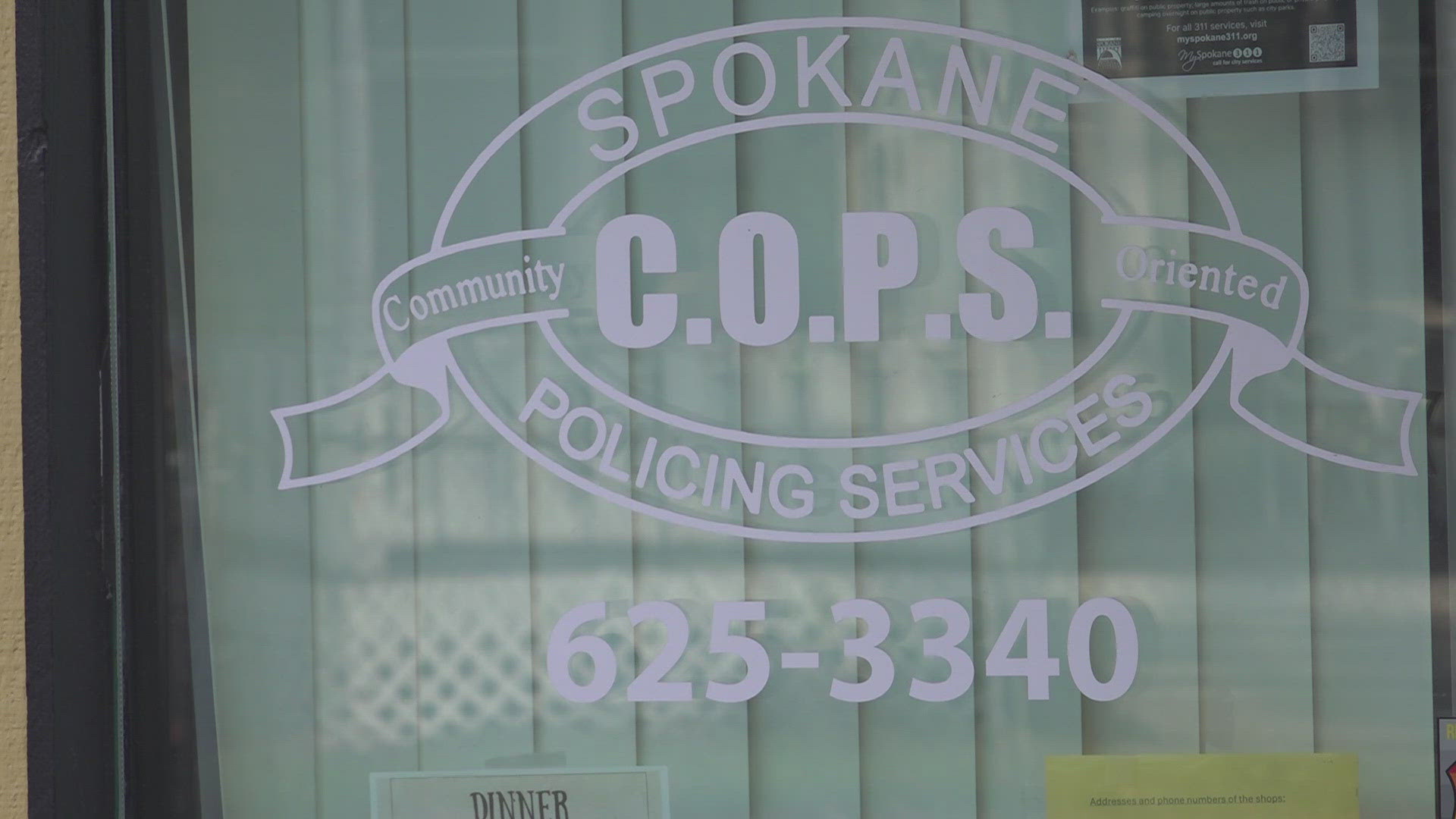SPOKANE, Wash. — Spokane C.O.P.S. (Community Oriented Policing Services) has been around for over three decades, offering non-emergency services across Spokane.
However, with the City of Spokane facing a $50 million deficit, C.O.P.S. could see more changes in the future.
“There are a lot of people out there who just don't feel comfortable talking to police officers,“ Jeff Johnson, executive director of Spokane C.O.P.S., said.
The program provides a form of policing different from the Spokane Police Department.
"We don't engage," Johnson said. "We're about crime prevention, right? So, if we see something, we write it down, turn it into the police, and then they follow up accordingly."
Since the organization's beginning in 1991, the City of Spokane has renewed a five-year contract, handing out nearly half a million dollars each year to fund C.O.P.S. services, which include fingerprinting kids, giving police a safe space to work and patrolling neighborhoods across Spokane.
But for the first time, that funding is not a guarantee.
"It was a tough pill to swallow when we first found out," Johnson said.
Instead, Spokane Mayor Lisa Brown's proposed budget would have the allocated funds of $450,000 go into an RFP, also known as a Request For Proposal.
Different organizations can apply for funding if they're believed to be a viable service for the community.
It's something Spokane Police Chief Kevin Hall believes to be the best option.
"I would say, from my perspective, we would need some very clear-cut performance metrics moving forward," Hall said.
Hall said the factors in how often they fingerprint children and provide services weren't at a rate he felt was adequate. However, Johnson argues the work C.O.P.S. does help with the perception of police, something he said is hard to see on paper.
"What you can't measure is what goes on here," Johnson said. "I mean, we have broken families who come here to do child exchanges, when dad's handing off to mom or vice versa, because it's safe, and people here are friendly, and there are a lot of people who just are not comfortable talking directly to police officers. They'll talk to us."
Johnson said Spokane C.O.P.S. will apply for the money like any other organization, but no matter the outcome, he's confident in the non-profit.
"We operate nine, well, eight cop shops and our administrative office, on a budget of under half a million dollars," Johnson said. "So, to put things in perspective, we're a pretty small investment."
"We have enjoyed their support, and I know they enjoyed our support," Hall said. "So whether they get the RFP or not, I foresee the partnership continuing."
The topic of funding Spokane C.O.P.S. is expected to be discussed at next week's City Council Legislative Session.
Hall also emphasized his willingness to work with Spokane C.O.P.S to try to evolve how the non-profit operates.

